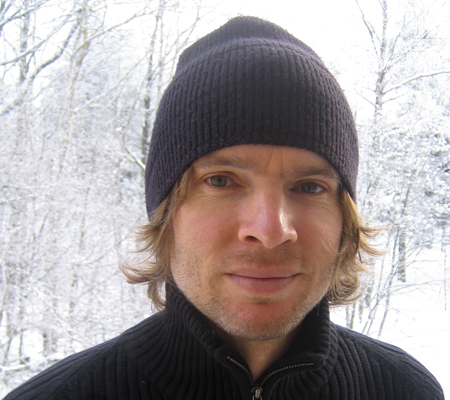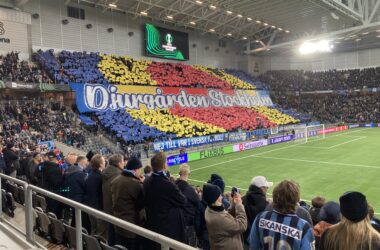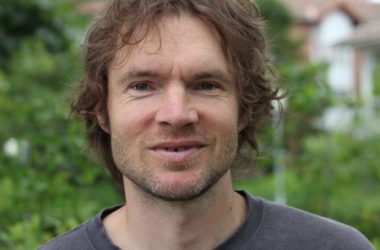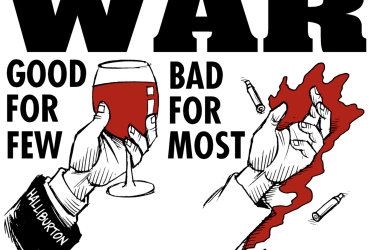By Gabriel Kuhn
Some months ago, I posted an interview with Pantrarna, a grassroots organization from Gothenburg, Sweden, here. The following article was written at the same time and originally published in CounterPunch, vol. 19, no. 20, November 16-30, 2012.
********************************************************************
When speaking of “suburbs” in Sweden, one must think of the French “banlieues”: concrete settlements on the big cities’ outskirts, characterized by everything that the intersections of a class society and racism imply in contemporary Europe: a weak infrastructure, cuts in social spending, high unemployment, omnipresent police units, and a population that largely consists of recent immigrants – in Sweden, these account for 90% of the population in some suburbs, which makes the country one of Europe’s most segregated. Among the most notorious Swedish suburbs are Rinkeby in Stockholm (namesake of the so-called Rinkebysvenska, a kind of Swedish Ebonics), Rosengård in Malmö (home to the famous soccer player Zlatan Ibrahimović: “You can take a boy out of Rosengård, but you can’t take Rosengård out of a boy”) – and Biskopsgården in Gothenburg.
In Biskopsgården, an organization was founded in early 2011 that claims an unexpected heritage: the “Panthers”, Pantrarna in Swedish, see themselves as direct descendants of the Black Panther Party. As their spokesperson Murat Solmaz explains, they see similarities to the goals and methods of the Black Panthers and feel inspired by their struggle. Solmaz rejects the argument that it is inappropriate to transfer a political concept from the USA of the late 1960s to contemporary Sweden: “If the ideas and methods make sense, why not? We can identify with people who fight against social injustice and racism.”
The Pantrarna consist mainly of youth living in Biskopsgården. Panthers in their early twenties are already veterans. According to Solmaz, the core of the organization consists of about forty activists. Total membership stands at about 150, and there are way over a thousand sympathizers. The immediate reason for the Panthers’ foundation was the fight for a local youth center. This fight has been won: the city of Gothenburg decided to provide an office building and three million Swedish crowns (about half a million US dollars) in order to open Pantergården, the “Panther Center”, in 2013. The Panthers are directly involved in the planning and will play a central role in the administration. This is the result of occupying city council offices, tireless petitioning, and broad local mobilizing.
The youth center was but a catalyst for a broader struggle for social justice and self-determination. Since the Pantrarna’s founding, they have organized lectures, study circles, and summer camps as well as campaigns against police violence, security cameras, and a media coverage of the suburbs that focuses almost exclusively on crime, car arson, and street battles with the police.
Support of former Black Panthers for the Pantrarna is assured. Bobby Seale came to visit Biskopsgården in the spring of 2012. On May 1, he spoke to a young and admiring crowd on a Biskopsgården square. Before returning to the US, he declared his steadfast support for the Pantrarna on Swedish radio: “We are talking about progressive social change. We are talking about dealing with all the social problems, whether they are in Sweden or in America. That’s what they are about, and that’s what we in the Black Panther Party were about.”
The Pantrarnas have received much attention in the Swedish media. Members are regularly invited to talk shows and quoted in the country’s journals. In the spring of 2012, a one-hour documentary film entitled “Behandla inte oss som djur”, “Don’t Treat Us Like Animals”, was released. Currently, the award-winning Swedish poet Johannes Anyuru is working on a book about them.
The Pantrarna have hit one of Sweden’s most sensitive spots: the old Social Democratic dream of the folkhemmet, the “people’s home”, has lost much of its promise due to the plight of the immigrant communities. Since many years, the Swedish suburbs have been serving as a symbol for “failed integration policies”. It doesn’t help that most politicians avoid the issue in embarrassment. It only allows the extreme right to exploit it. Representatives of the anti-immigration Sweden Democrats, who entered parliament in 2010, regularly speak of the suburbs as “no-go zones”, in which even medics and firefighters are attacked by out-of-control youth. A self-confident political organization formed precisely by these youth shakes up the picture significantly.
The Panther’s presence in Biskopsgården cannot be missed. When, during a visit to Gothenburg in late October, I step into a streetcar to Biskopsgården, I run into Amanda Ruiz Jönsson, a former Swedish national youth soccer player. Since a doctor messed up a knee surgery, her soccer career has been put on ice. “That’s what happens if you can’t afford private health insurance,” she says with a shrug. The Social Democrats introduced the privatization of social services in Sweden already in the 1990s, not wanting to miss the neoliberal boat that apparently was the only way forward. Since a center-right coalition took over the government offices in 2006, this process has only been accelerated. Most strongly affected by the undermining of public services are the suburbs. This also has significant economic consequences. Ruiz Jönsson does not have much time for organizing with the Panthers right now. “If you go to school and need to hold a job at the same time, well, there is not much left.”
Once I arrive in Biskopsgården, I go to Idénpunkten, an austere citizens advise bureau, where the Panthers were founded a year and a half ago. A meeting has just ended. Representatives of the city council were looking for solutions to the “suburban problem”. Two Panthers also assisted. One of them, Yassin Ben Salah, says that Pantrarna get invited to two such meetings a week. He explains that the organization’s approach was purely pragmatic and had nothing to do with being co-opted by the system. “We know that the politicians don’t talk to us because they want to, but because they feel forced to. We turn this to our advantage. We do not negotiate, we demand.”
This tactic has lead to some surprising results. Göteborgs-Posten is Sweden’s second biggest daily. After the Panther Diren Öz was shot dead outside his home on July 5, the Göteborgs-Posten articles focused on little more than the unnamed victim being “known by the police”. The Panthers got to work. They used social media to mobilize against the paper, covered the suburbs in posters, and called for a big demonstration outside the Göteborgs-Posten offices. After a few meetings with the editors, the paper accepted all of the Panthers’ demands: 1. A public apology. 2. An explanation in the paper. 3. Concrete steps to ensure more balanced reporting about the suburbs. A first such step was Göteborgs-Posten financing the production of the journal Wazzup Biskop by Biskopsgården youth. In an article from October 16, the paper explained the project thus: “It began with the Pantrarna, a group of younger people from Biskopsgården, criticizing the mass media coverage of the suburbs, especially by Göteborgs-Posten, as ignorant, one-sided, and negative.” Sometimes, politics can be this simple.
Close to Idénpunkten, in the midst of street vendors selling produce, children playing soccer, and pensioners looking for refundables, I meet two more Panthers, Muhammed Hällgren Abdulrahman and Homa Badpa. Badpa wears a T-shirt with the picture of the murdered Darin Öz. For her, the success of the Göteborgs-Posten campaign proved that “we can sometimes achieve more than we believe possible”. That parts of the Swedish left accused the Panthers of “collaborating with the bourgeois media” reflects the Panthers’ complicated relationship with the traditional left. While the Panthers name social justice as their number one political priority and often use anti-capitalist rhetoric, they are not impressed by what they conceive as self-righteousness, romantic projection, and ideological bickering among the left. Ben Salah evokes, once again, a pragmatic approach: “If you’re not prejudiced in the way that most people on the left are, you are ready to work with all sorts of people. I don’t care where people come from or what they do; if they want to work for positive change, I will work with them.”
Solmaz sees the Panthers as a contemporary form of political organizing that is replacing the traditional left. Apart from overcoming ideological barriers and more openness, he particularly emphasizes the role of the youth: “Normally, one tries to change the youth through parents and teachers. We look at it the other way: we want to change the adults through the youth.” In this context, Solmaz doesn’t hesitate to speak of vanguardism: “We are clearly a vanguard. We set examples that others can follow.”
The Panthers are no isolated phenomenon. In Stockholm, they have a sister organization called Megafonen. Megafonen was founded in the suburb of Husby, but has now also groups in Rinkeby and Hässelby-Vällingby. It is based on principles that echo those of the Panthers. Both groups emerged at around the same time without knowing of one another. “It was like Darwin and Wallace,” Solmaz states. Basar Gerecci, one of the founders of Megafonen, confirms the common origins of the groups: “We were frustrated with the situation in the suburbs, with social conditions in general, but also with the established left. We wanted to focus on our own neighborhood and on organizing with the people we share our everyday life with.”
Given temperatures near freezing point, I spend the rest of the day in one of the Panther’s apartments with börek, nuts, and cola. When it is time to head for the last train back to Stockholm, the Panthers’ upcoming journey to Malmö is mentioned. Locals want to found a Panther chapter there. Solmaz considers the expansion of the suburban movement inevitable: “This is the future. We breathe new life into radical politics.”
More blogs from Gabriel | Back to Gabriel Kuhn’s Author Page






